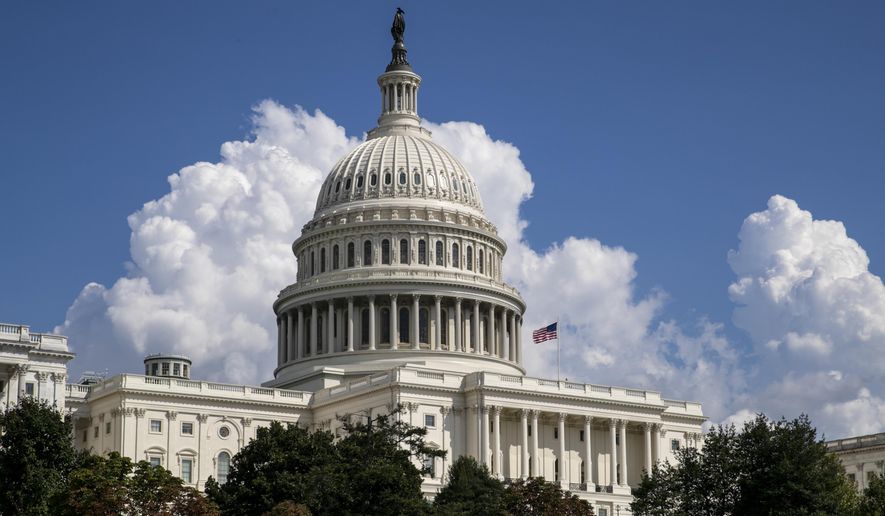House Democrats on Tuesday were scrambling to keep enough of their left flank in line to muscle through a package to increase spending caps this week, amid complaints from liberals that the bill allows for too much spending on the military.
House Budget Committee Chairman John Yarmuth said it’s not clear whether there will be a floor vote on the package this week.
“Obviously any caucus can bring down any bill,” said Mr. Yarmuth, Kentucky Democrat. “We have to figure out whether we’re going to be able to govern. … This is a first test of it.”
Mr. Yarmuth’s plan calls for up to $733 billion in total discretionary defense spending in 2020, which is less than President Trump’s $750 billion request but well above what many liberals can stomach.
Rep. Pramila Jayapal and about 20 other House Democrats are pushing an amendment to the package that would equalize spending cap levels for defense and non-defense over the next two years.
If the amendment fails and all of the co-sponsors decide to vote against Mr. Yarmuth’s broader plan as a result, the numbers would be enough to prevent the bill from moving forward.
Rep. Mark Pocan, who along with Ms. Jayapal is a co-chair of the Congressional Progressive Caucus, said he thinks there are enough Democrats in their camp to block action.
“I don’t know how we’re going to do a vote tomorrow and leave for a retreat all at the same time,” said Mr. Pocan, Wisconsin Democrat. “I just think there’s a math problem for them, period, looking at tomorrow.”
House Democrats are scheduled to head to Northern Virginia for a policy retreat Wednesday through Friday.
Ms. Jayapal said if her amendment does pass, she thinks they could get a majority — if not all — of progressive caucus members to vote for the broader plan.
“We have a diverse caucus — we are not asking to cut the military spending number … because we understand that that’s challenging,” said Ms. Jayapal, Washington Democrat. “But we got to have something here if we’re expected to try to vote for a number that is so ridiculously high, while at the same time we have the kind of inequality that we have in the country.”
Mr. Yarmuth said a failure to pass the package would minimize Democrats’ leverage in coming negotiations with the Senate and the White House to increase the discretionary spending caps, which were the product of a 2011 budget deal.
If Congress doesn’t act, the caps will ratchet down by about $125 billion for the budget year that starts Oct. 1.
“We’re involved, ultimately, in a three-way negotiation on the caps and we think these numbers are the ones that position us best with the Senate and the White House,” he said.
Rep. Dan Kildee, the party’s chief deputy whip, said Democrats have to show they’re able to govern.
“I think the amendments will be given a fair hearing, and we’ll see what happens and then we’ll vote on whatever comes out,” said Mr. Kildee, Michigan Democrat “But I think the real push is to clearly indicate that we’re able to have some differences, but at the end of the day we have to be able to govern. We can’t let ourselves fall off the cliff here.”
• Gabriella Muñoz can be reached at gmunoz@washingtontimes.com.
• David Sherfinski can be reached at dsherfinski@washingtontimes.com.




Please read our comment policy before commenting.